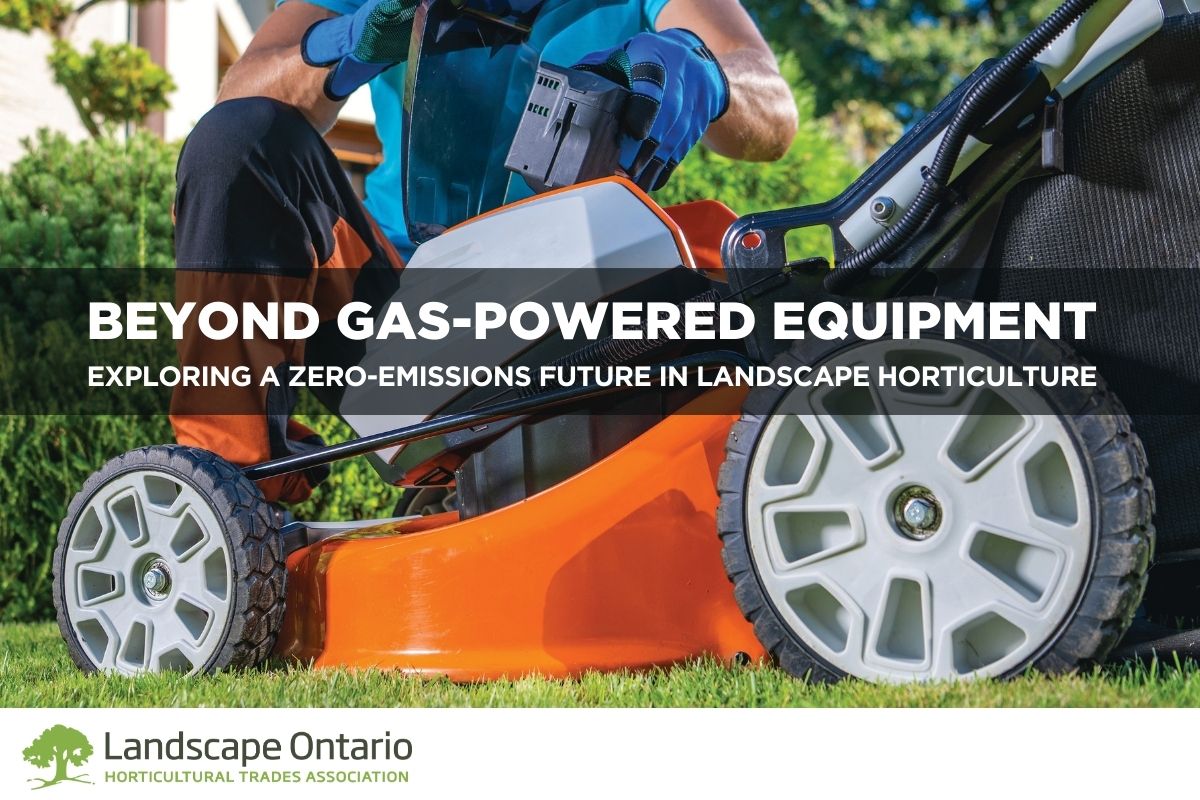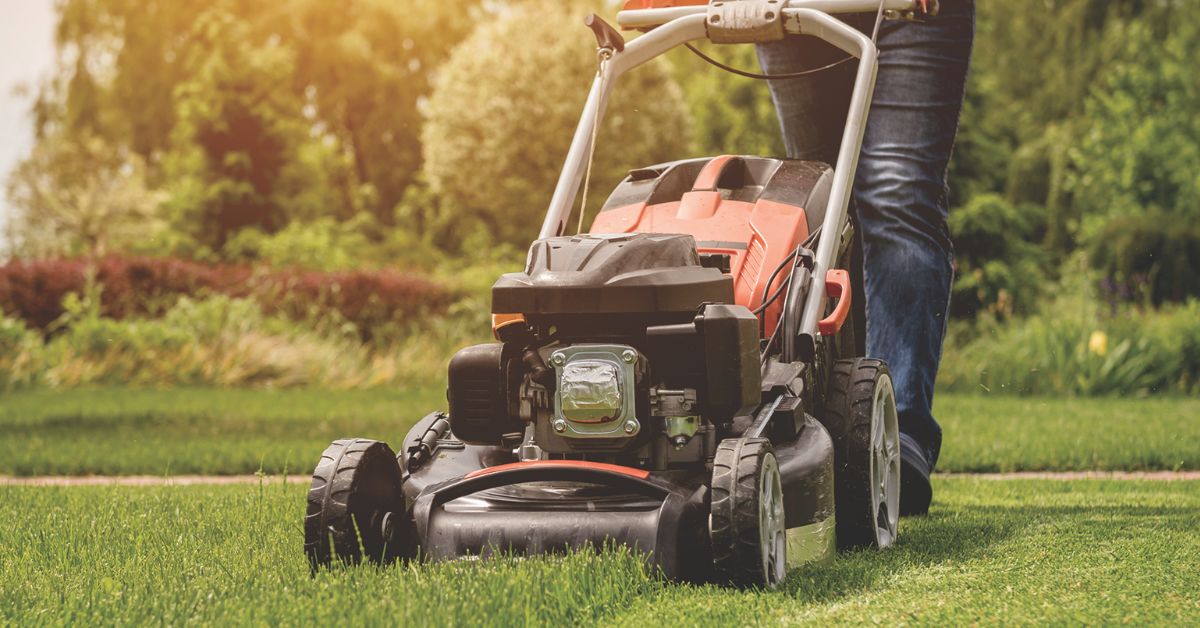May 26, 2025

Beyond gas-powered equipment: Exploring a zero-emissions future in landscape horticulture

INTRODUCTION
Landscape Ontario Horticultural Trades Association (LO) is the province’s premier horticultural trades association, representing over 3,000 professional members. LO’s mission is to be the leader in representing, promoting and fostering a favourable climate for the advancement of the landscape horticulture trades in Ontario. LO is governed by an elected Provincial Board of Directors that volunteer time and effort to oversee the many programs and functions of the Association. LO is made up of 10 different chapters across Ontario, and represents 11 different sectors (arborists, designers, garden centres, grounds management, growers, landscape contractors, turf management, interior plantscape, irrigation, lighting, and snow and ice management).
The City of Toronto’s Environment and Climate Division was directed by Toronto City Council to undertake the necessary steps to study a proposed ban on the use of two-stroke small engine equipment. The City of Toronto consulted with LO about the implications of the potential ban on the landscape sector. To better understand the implications, the City of Toronto asked LO to provide information on this topic. The City of Toronto is seeking to understand the landscape industry market including the opportunities and challenges for converting from two-stroke engine powered equipment to battery-powered outdoor landscape equipment.
LO was engaged to research and produce a state of the industry report outlining landscape owners’ perspectives on a potential ban, cost and barriers to adoption of battery-powered landscape equipment, equipment manufacturers, battery life and recycling options and to develop case studies highlighting companies that have transitioned to battery-powered equipment to better understand the successes and challenges experienced.
As a not for profit trade association, LO values the connections with municipal partners like the City of Toronto. We have a long history of working together, collaborating on projects and initiatives that enhance the experience of residents and visitors alike through managed green spaces. It is important for LO and its members to work collaboratively with the City of Toronto to develop a path forward that takes into account the economic and business challenges while working toward a zero-emissions future.
To report on landscape contractors’ willingness to transition to zero-emissions landscape equipment, LO developed a “State of the Industry: Battery-Powered vs. Two-Stroke Equipment” survey (“State of the Industry Survey”) and circulated it to landscape professionals across the country to capture quantitative and representative data on the subject. From the survey results, 15 landscape professionals were selected for a virtual interview to obtain an in-depth understanding of the benefits, challenges, concerns, opportunities and strategies for adopting battery-powered equipment for each particular company.
From the participants interviewed, three landscape companies that have implemented battery-powered equipment were selected to complete a case study to share further details on their experiences. The case studies provide further insight on the challenges each company faced, and how they were addressed.
LO then conducted a research scan to review available resources related to gas-powered equipment bans and battery-powered equipment opportunities that may support the industry in transitioning their equipment to battery power. The research scan included the current market for commercial gas- and battery-powered equipment, cost-of-ownership analysis, considerations for battery use, electrical draw, charging, storing and transportation infrastructure, maintenance and repair, lifespan and recycling, an overview of other gas-powered equipment bans, the opportunities and challenges and well as the health and noise impacts of landscape equipment.
INDUSTRY SURVEY

SUMMARY OF RESULTS
LO developed and circulated the "State of the Industry Survey” across Canada. Responses were received from landscape businesses across the nation, ranging in size from sole proprietors to companies with 200-plus employees.The survey data demonstrated there are many benefits of transitioning to zero-emissions landscape equipment, including decreased noise and vibration, ease of start up, operation and training, avoiding mixing and storing fuels, avoiding fuel spills, decreased exhaust exposure for operators, minimized maintenance, fuel savings and reduced environmental impact.
Even though landscape professionals are naturally moving toward battery-powered equipment (only 26% of survey respondents noted that they haven’t transitioned any of their equipment to battery), the transition to using battery-powered equipment brings many challenges and barriers. These include high upfront costs, the need for implementing charging infrastructure, limited battery life/runtime, decreased efficiency compared to two-stroke equipment, lack of performance for heavy-duty tasks, and battery replacement and disposal.
Many landscape professionals expressed concerns about the battery-powered backpack blowers not having the power to accomplish heavy and potentially wet fall cleanups. There was also concern over battery-powered mowers in the spring when grass is dense, long and wet. Only 4% of survey respondents answered that battery-powered equipment can tackle these heavy-duty jobs. Stakeholders suggested that LO should request a spring and fall exemption for two-stroke equipment in these conditions.
It was also determined that most businesses would benefit from a delayed implementation of a potential ban on two-stroke equipment. The majority of survey respondents (42%) requested a gradual transition period of three to seven years.
Overall, survey respondents can see that there is a benefit to transitioning their operations to using zero-emissions landscape equipment. LO recognizes there is work to be done within the industry to support this shift.